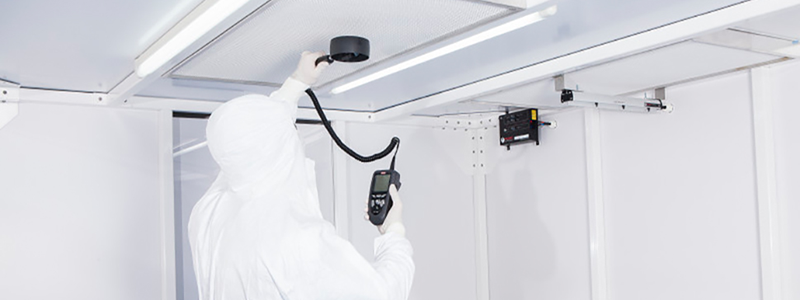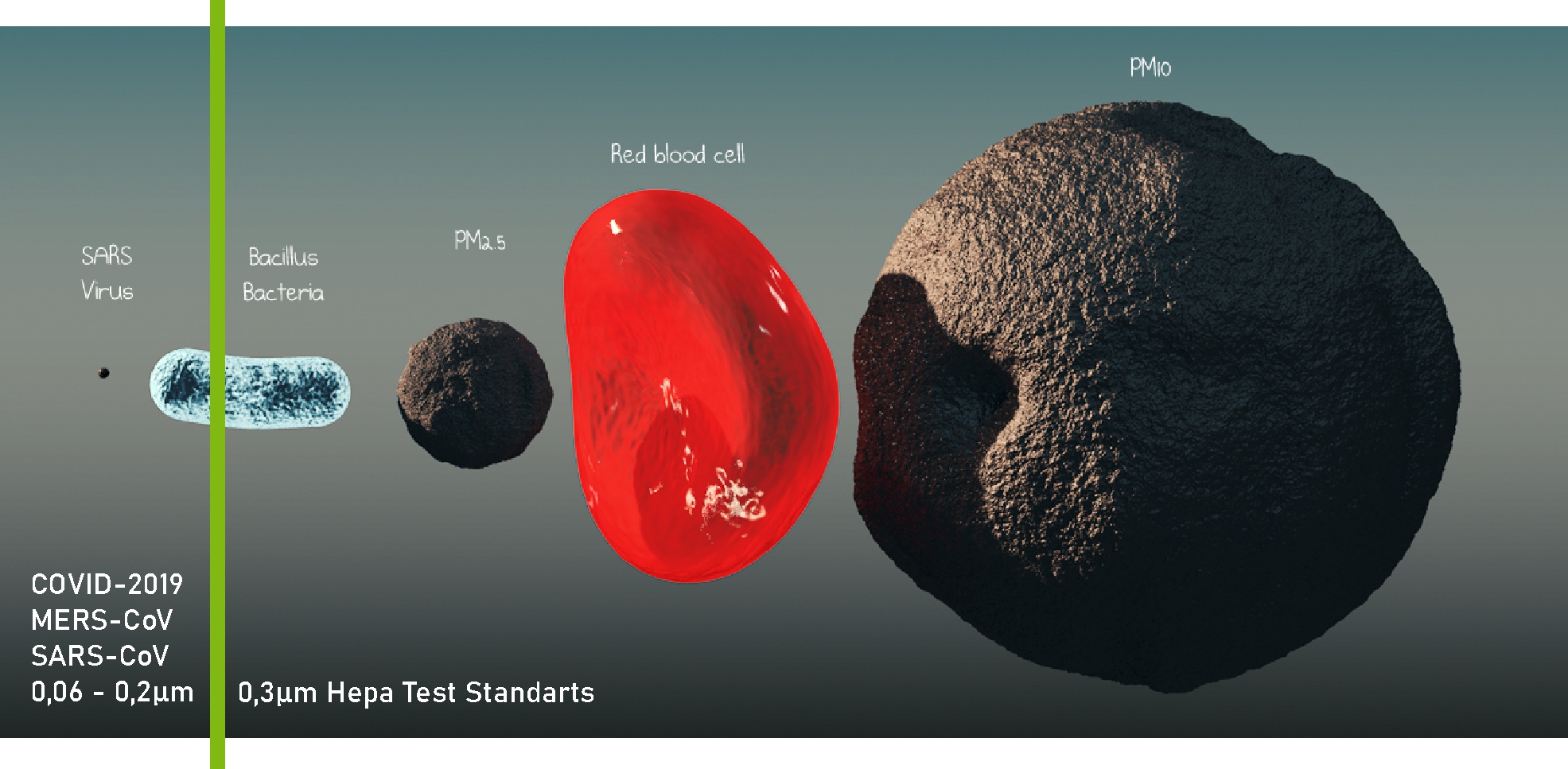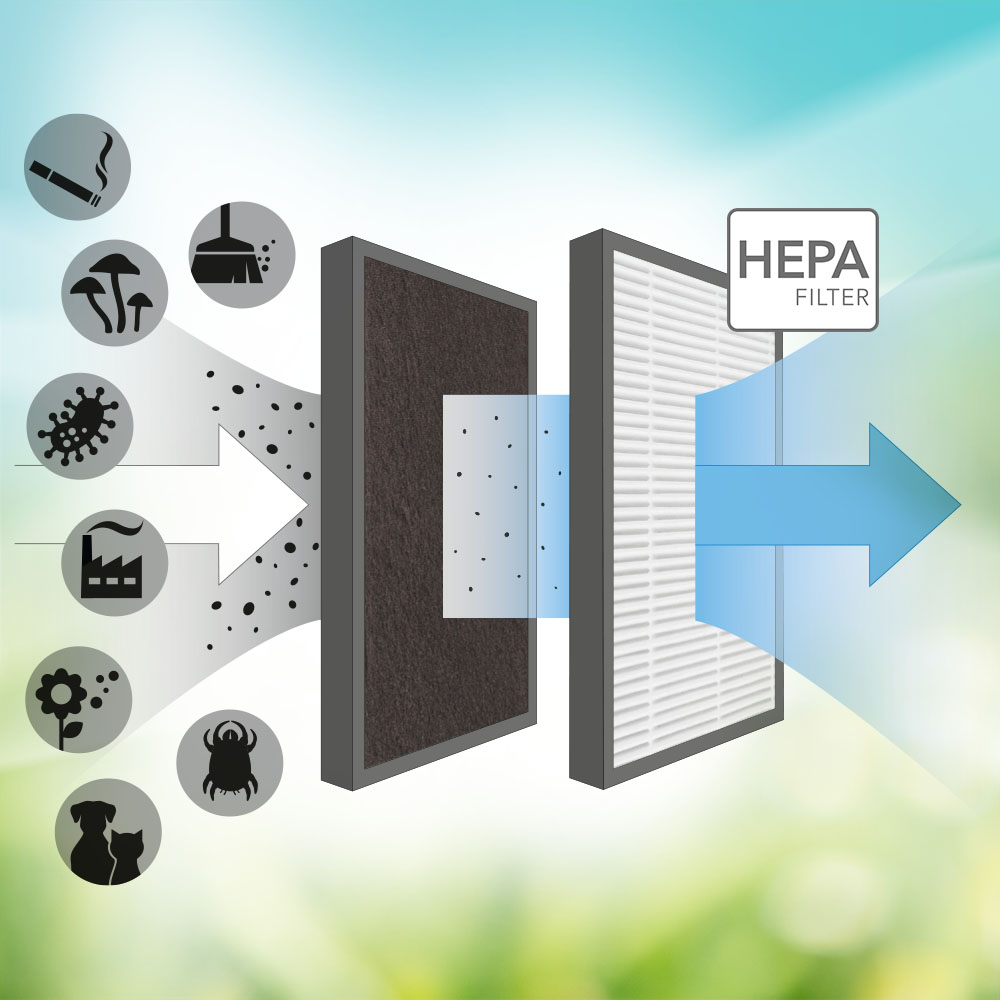Air Filtration
Air Filtration
For years, the main reason for the use of air filters has been keeping ventilation components clean and preventing contamination of indoor surfaces. Although these are still important and necessary today, as our knowledge on indoor air pollutants increases, it has been understood that the main reason for their use is to protect human health. Selection and maintenance of air filters should be done with this in mind.
The air filtration system is the first method of defense against airborne contaminants. Sufficient efficiency selected air filters will not only provide the desired air cleanliness for human health, but also protect the building and mechanical equipment.
We know that all particles carried in the air have an effect on human health and comfort. However, considering the indoor air quality, particles of 2.5 p: m and smaller should be given much more importance. Air filters should be selected based on this criterion. The higher the efficiency of the air filter for particles 2.5 μm and smaller, the better the quality of the air supplied to the environment.
With cleaner air, the energy expenditure required for heating and cooling will be significantly reduced. Dust accumulating on dirty coils causes heat transfer not to work at design value and to show low efficiency. Accordingly, it is clear that an annual loss of 5% in ventilation energy will be a much larger expenditure item than the cost of a high efficiency filter. High efficiency filtration will also ensure that the channels are kept clean. Otherwise, the ducts will require frequent cleaning. This means new costs.
In summary, a highly efficient filtration system should be understood as preventive maintenance and savings that can pay for itself in a very short time for health and high production capacity for employees and building management and operation.

2. What is HEPA Filter?
The HEPA filter with the lowest particle capture efficiency is defined as the H10 class, while a HEPA filter with the highest possible particle capture efficiency is in the H14 class. Especially during epidemic periods, airborne viruses, etc. HEPA filters are the most effective solution to effectively remove harmful pathogens from the air we breathe. In order to take the highest possible level of precaution, H14 class HEPA filters come to the fore. Because H14 class HEPA filters have fibers that can capture very very small particles such as Coronavirus and many similar nano-sized particles.
The minimum efficiency of HEPA Filters is 99.95% for H13 class and 99.995% for H14 class in the most penetrating particle size (MPPS) according to EN1822 standard.
When we want to pass 100,000 particles with MPPS value through a H14 class filter, the maximum number of particles that can pass through the filter is 5.

3.Hepa Filters Effect on (COVID-19)
Particles of 1 µm and smaller are particles that pose more risk to human health. Coronavirus is in the size range of 0.08 to 0.16 microns. The minimum particle size that HEPA Filters can hold is between 0.9 and 0.20. Considering that the hair has an average thickness of 110 µm, the importance of HEPA Filters can be understood.
Regarding the Coronavirus (COVID-19) outbreak, the most common "Do HEPA Filters keep the virus?" The answer to the question; Yes, HEPA Filters keep viruses to the extent of their efficiency value. HEPA Filters; It is used in hygienic applications such as hospitals, pharmaceutical factories, food and beverage production facilities. It is located in hospitals, especially operating rooms, intensive care rooms, isolation rooms, and biosafety cabinets.

